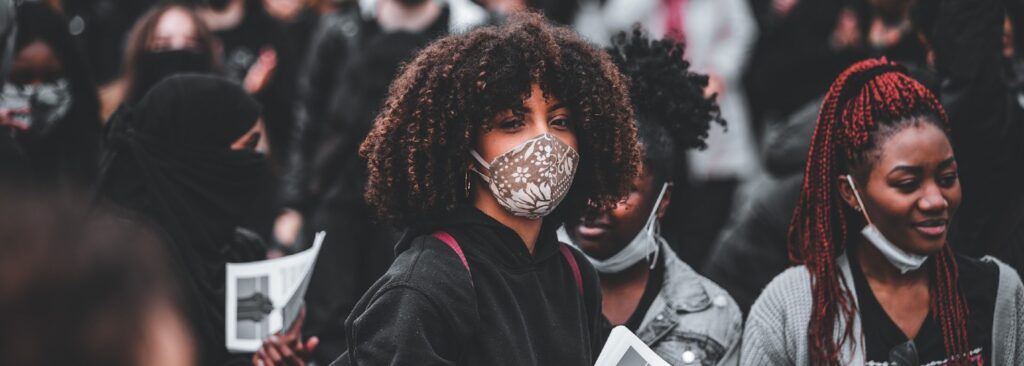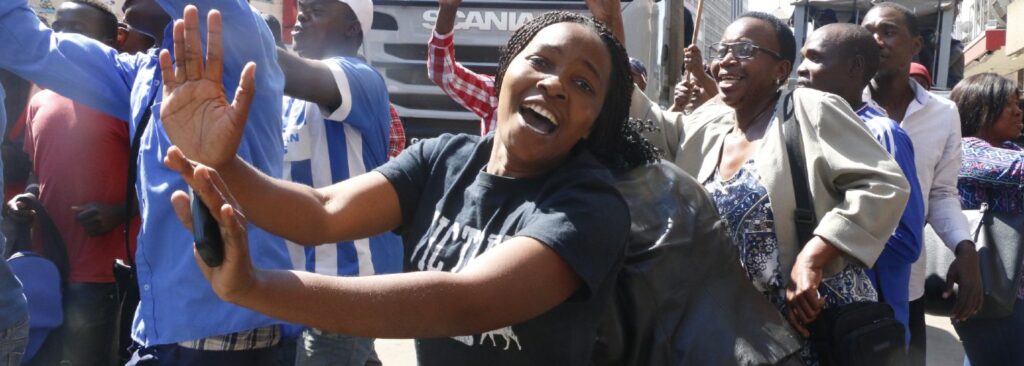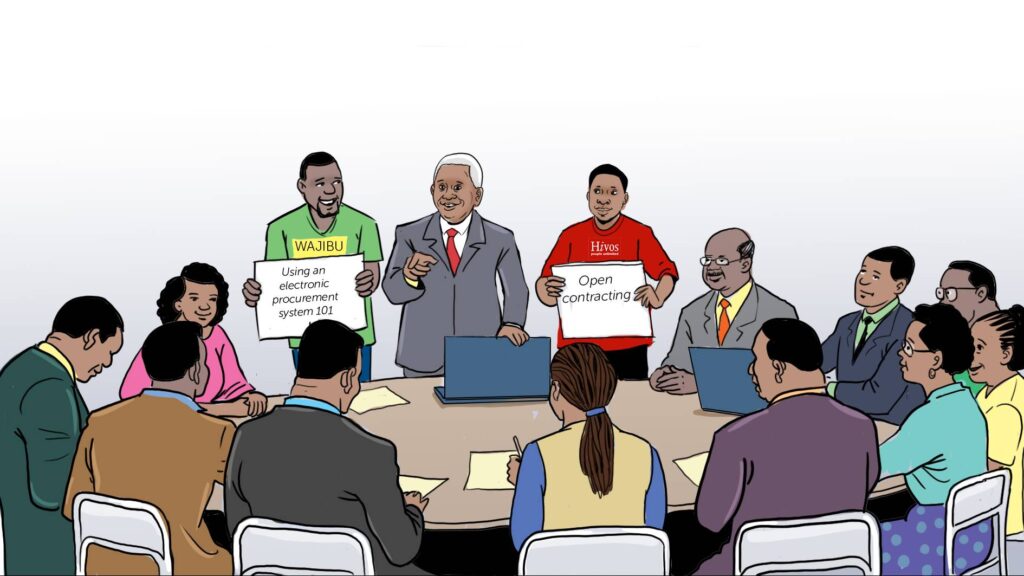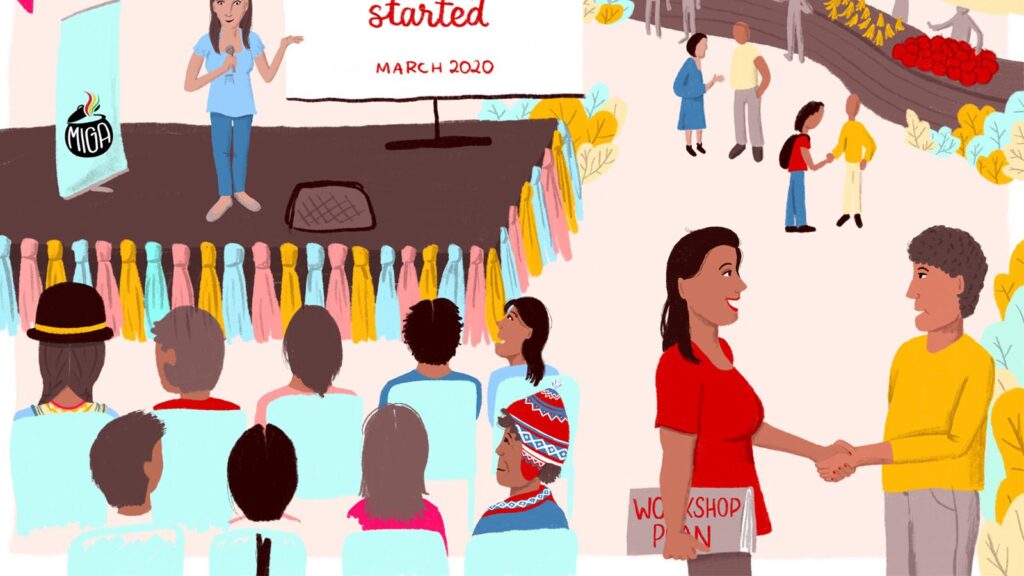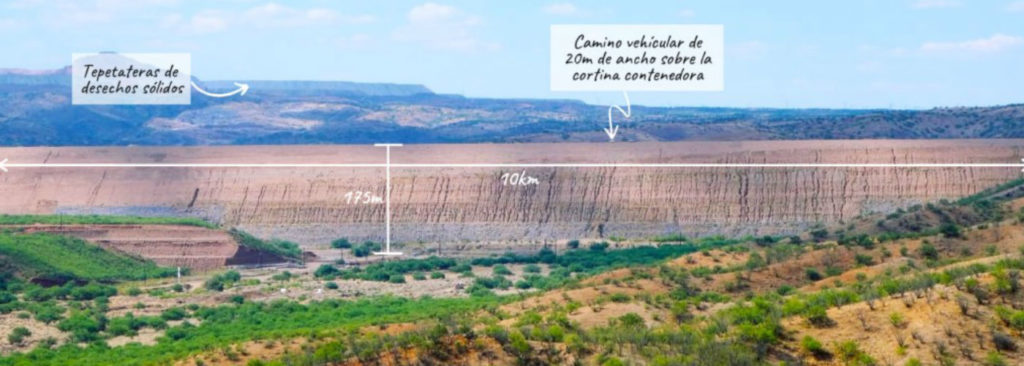When the Kenyan government contracts private companies to deliver public goods, services and infrastructure, money in the millions just evaporates. Most of it disappears into the deep pockets of the lucky few. Misty procurement deals allow certain entrepreneurs to make huge profits, while Kenyan citizens rarely see the fruits of their hard-earned tax money. We spoke to Mendi Njonjo, Hivos East Africa’s regional director, about the fight against fraud and corruption and recent signs of hope.
“Corruption destroys the social contract between citizens and the state,” Mendi says without mincing words. “Unfortunately, this is nothing new in Kenya, as I know from my own experience. Just like anybody else, I pay taxes. All in all about 50 percent of my income. But the roads I drive on are poor, and schools and hospitals are badly equipped. They are built at extremely inflated prices, if they are built at all. This way, we never get what we pay for,” she says, frustrated.
Cost inflation and misuse of funds
Recent research by independent investigative journalists has shown, for example, that a company contracted by the government charged €15 for something that actually cost €2.50. “Unfortunately, this is not an exception,” Mendi sighs. A quick win for the company, but citizens lose out. Not only through cost inflation, but also through misuse of funds. In many cases, the money doesn’t even go where it is supposed to.
According to the Uwezo Fund supported by Kenya’s president, government contracts for supplying essential goods and services to Kenyan citizens amount to 13.8 billion euros yearly. “We’ve learned that most of the money leaks during the procurement process,” Mendi explains. “The thing is, bad procurement creates second class Kenyan citizens. It is not just about not getting value for money. It destroys trust, transparency, and accountability. And it leads to illness, misery, even death because we can’t get proper health care.”
Information must be accessible to everyone
In 2016, Hivos launched the Open Up Contracting program that aims to make public tenders transparent. Kenya is one of the countries where we work. Over the past few years, we have trained Kenyan civil society, media, activists, businesses and civic watchdog organizations to keep a close eye on public contracting processes and advocate for greater transparency and efficiency.
This means that information must be accessible to everyone, at all stages. From planning and issuing tenders, to awarding and signing contracts, to implementation and finally, oversight. One of the areas in Kenya spearheading this concept is Makueni County. They signed an MoU to adopt our Open Up Contracting approach in 2018.
“I’ve seen with my own eyes what it means in practice,” Mendi exclaims. “When I recently visited a maternity ward in a Makueni hospital, they had incubators with oxygen for the babies. They had specialized staff to ensure women could deliver safely. This wonderful example of getting the money to the right place shows you that responsible procurement is literally a matter of life and death. Makueni County is leading the way for Kenya as a whole. It shows that we can do it – we can achieve positive change together.”
Africa is not poor, it is just badly mismanaged.
Presidential support
This September, Kenya’s president Uhuru Kenyatta issued a momentous new directive in response to an exposé by East African media platform Nation Media Group that uncovered an abuse of funds intended for Covid-19 medical supplies. He stated, “The Ministry of Health, within the next 30 days, must come up with a transparent, open method and mechanism through which all tenders and procurement done by the Kenya Medical Supplies Agency are available online.” The President also used this directive to call for transparency in all government-related procurement processes, both nationally and locally. In doing so, he showed how there is a direct link between fighting Covid-19 and fighting corruption in general.
“Vulnerable communities like women, people with a disability, and LGBTQ persons are disproportionately affected by corruption. It increases their inequality,” Mendi points out. By creating accessible information, citizens and businesses in all their diversity are getting onboard in identifying and fixing problems. Also, fair public procurement directly benefits marginalized groups by giving them a chance to make a bid.
A great source of motivation
Mendi has been working at Hivos since 2010 for greater equality and openness in East Africa. “What we are doing here is important, it needs to be done. As an African woman, I honestly believe that my life has meaning, it has value. Even though society has tried to box me in since I was born, I am entitled to dignity and equal treatment – and that goes for all people in Africa.” Her drive is inspiring. “It’s so motivating to see that our efforts and financial support are really getting things done. Things are changing, and that gives me great hope. Because, you know, Africa is not poor – it’s just badly mismanaged.”






